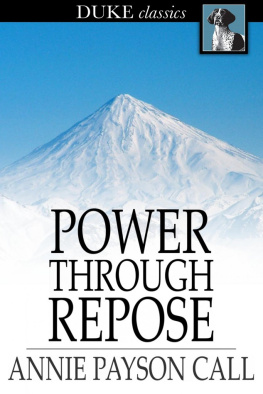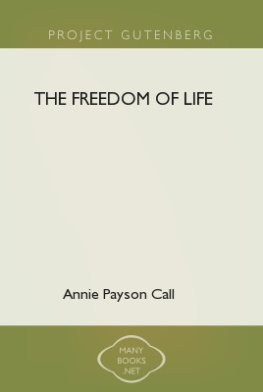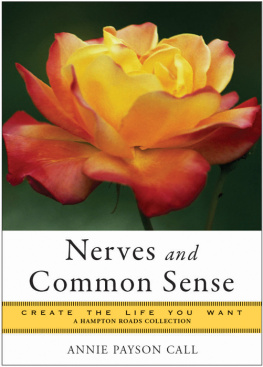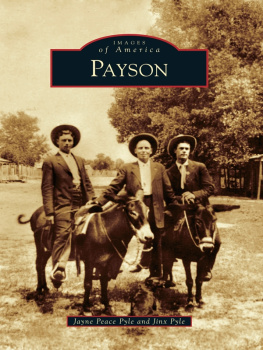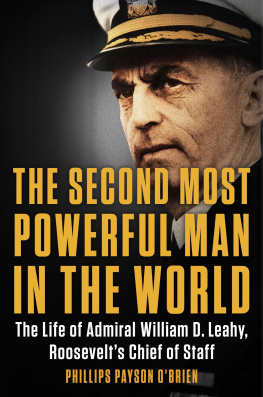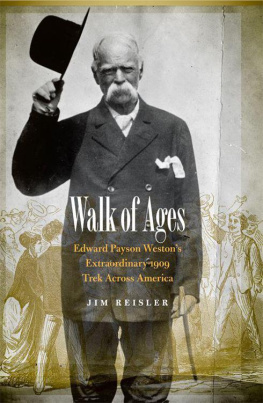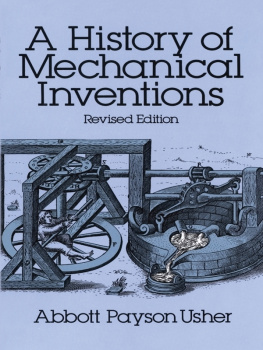Annie Payson Call - Power Through Repose
Here you can read online Annie Payson Call - Power Through Repose full text of the book (entire story) in english for free. Download pdf and epub, get meaning, cover and reviews about this ebook. publisher: Duke Classics, genre: Romance novel. Description of the work, (preface) as well as reviews are available. Best literature library LitArk.com created for fans of good reading and offers a wide selection of genres:
Romance novel
Science fiction
Adventure
Detective
Science
History
Home and family
Prose
Art
Politics
Computer
Non-fiction
Religion
Business
Children
Humor
Choose a favorite category and find really read worthwhile books. Enjoy immersion in the world of imagination, feel the emotions of the characters or learn something new for yourself, make an fascinating discovery.
- Book:Power Through Repose
- Author:
- Publisher:Duke Classics
- Genre:
- Rating:5 / 5
- Favourites:Add to favourites
- Your mark:
- 100
- 1
- 2
- 3
- 4
- 5
Power Through Repose: summary, description and annotation
We offer to read an annotation, description, summary or preface (depends on what the author of the book "Power Through Repose" wrote himself). If you haven't found the necessary information about the book — write in the comments, we will try to find it.
When we hear the word power, we usually associate it with action, aggression, and boldness. However, according to author Annie Payson Call, there is another kind of power that comes from rest, reticence, and reflection. In Power Through Repose, Payson contends that a schedule of regular rest and meditation can help us focus our efforts and increase our efficacy in life.
Power Through Repose — read online for free the complete book (whole text) full work
Below is the text of the book, divided by pages. System saving the place of the last page read, allows you to conveniently read the book "Power Through Repose" online for free, without having to search again every time where you left off. Put a bookmark, and you can go to the page where you finished reading at any time.
Font size:
Interval:
Bookmark:

First published in 1891
ISBN 978-1-62011-018-8
Duke Classics
2012 Duke Classics and its licensors. All rights reserved.
While every effort has been used to ensure the accuracy and reliability of the information contained in this edition, Duke Classics does not assume liability or responsibility for any errors or omissions in this book. Duke Classics does not accept responsibility for loss suffered as a result of reliance upon the accuracy or currency of information contained in this book.
Personality bindsuniversality expands.
FRANCOISE DELSARTE.
When the body is perfectly adjusted, perfectly supplied with force,perfectly free and works with the greatest economy of expenditure, itis fitted to be a perfect instrument alike of impression, experience,and expression.
W. R. ALGER.
THE literature relating to the care of the human body is already veryextensive. Much has been written about the body's proper food, the airit should breathe, the clothing by which it should be protected, thebest methods of its development. That literature needs but little addedto it, until we, as rational beings, come nearer to obeying the lawswhich it discloses, and to feeling daily the help which comes from thatobedience.
It is of the better use, the truer guidance of this machine, that Iwish especially to write. Although attention is constantly called tothe fact of its misuse,as in neglected rest and in over-strain,inall the unlimited variety which the perverted ingenuity of a cleverpeople has devised, it seems never to have come to any one's mind thatthis strain in all things, small and great, is something that can beand should be studiously abandoned, with as regular a process oftraining, from the first simple steps to those more complex, as isrequired in the work for the development of muscular strength. When aperversion of Nature's laws has continued from generation togeneration, we, of the ninth or tenth generation, can by no possibilityjump back into the place where the laws can work normally through us,even though our eyes have been opened to a full recognition of suchperversion. We must climb back to an orderly life, step by step, andthe compensation is large in the constantly growing realization of thegreatness of the laws we have been disobeying. The appreciation of thepower of a natural law, as it works through us, is one of the keenestpleasures that can come to man in this life.
The general impression seems to be that common-sense should lead us toa better use of our machines at once. Whereas, common-sense will notbring a true power of guiding the muscles, any more than it will causethe muscles' development, unless having the common-sense to see theneed, we realize with it the necessity for cutting a path and walkingin it. For the muscles' development, several paths have been cut, andmany who are in need are walking in them, but, to the average man, theroad to the best kind of muscular development still remains closed. Theonly training now in use is followed by sleight-of-hand performers,acrobats, or other jugglers, and that is limited to the professionalneeds of its followers.
Again, as the muscles are guided by means of the nerves, a training forthe guidance of the muscles means, so far as the physique is concerned,first, a training for the better use of the nervous force. The nervoussystem is so wonderful in its present power for good or ill, sowonderful in its possible power either way, and so much more wonderfulas we realize what we do not know about it, that it is not surprisingthat it is looked upon with awe. Neither is it strange that it seems tomany, especially the ignorant, a subject to be shunned. It is notuncommon for a mother, whose daughter is suffering, and may be on theverge of nervous prostration because of her misused nerves, to say, "Ido not want my daughter to know that she has nerves." The poor childknows it already in the wrong way. It is certainly better that sheshould know her nerves by learning a wholesome, natural use of them.The mother's remark is common with many men and women when speaking ofthemselves,common with teachers when talking to or of their pupils.It is of course quite natural that it should be a prevailing idea,because hitherto the mention of nerves by man or woman has generallymeant perverted nerves, and to dwell on our perversions, except longenough to shun them, is certainly unwholesome in the extreme.
SO evident are the various, the numberless perversions of our powers inthe misuse of the machine, that it seems almost unnecessary to write ofthem. And yet, from another point of view, it is very necessary; forsuperabundant as they are, thrusting their evil results upon us everyday in painful ways, still we have eyes and see not, ears and hear not,and for want of a fuller realization of these most grievous mistakes,we are in danger of plunging more and more deeply into the snarls towhich they bring us. From nervous prostration to melancholia, or otherforms of insanity, is not so long a step.
It is of course a natural sequence that the decadence of an entirecountry must follow the waning powers of the individual citizens.Although that seems very much to hint, it cannot be too much when weconsider even briefly the results that have already come to us throughthis very misuse of our own voluntary powers. The advertisements ofnerve medicines alone speak loudly to one who studies in the leastdegree the physical tendencies of the nation. Nothing proves better theartificial state of man, than the artificial means he uses to try toadjust himself to Nature's laws,means which, in most cases, serve toassist him to keep up a little longer the appearance of natural life.For any simulation of that which is natural must sooner or later leadto nothing, or worse than nothing. Even the rest-cures, the most simpleand harmless of the nerve restorers, serve a mistaken end. Patients gowith nerves tired and worn out with misuse,commonly called over-work.Through rest, Nature, with the warm, motherly help she is ever ready tobring us, restores the worn body to a normal state; but its owner hasnot learned to work the machine any better,to drive his horses morenaturally, or with a gentler hand. He knows he must take life moreeasily, but even with a passably good realization of that necessity, hecan practise it only to a certain extent; and most occupants ofrest-cures find themselves driven back more than once for another"rest."
Nervous disorders, resulting from overwork are all about us. Extremenervous prostration is most prevalent. A thoughtful study of the facesaround us, and a better understanding of their lives, brings to lightmany who are living, one might almost say, in a chronic state ofnervous prostration, which lasts for years before the break comes. Andbecause of the want of thought, the want of study for a better, morenatural use of the machine, few of us appreciate our own possiblepowers. When with study the appreciation grows, it is a daily surprise,a constantly increasing delight.
Extreme nervous tension seems to be so peculiarly American, that aGerman physician coming to this country to practise became puzzled bythe variety of nervous disorders he was called upon to help, andfinally announced his discovery of a new disease which he chose to call"Americanitis." And now we suffer from "Americanitis" in all itsunlimited varieties. Doctors study it; nerve medicines arise on everyside; nervine hospitals establish themselves; and rest-curesinnumerable spring up in all directions,but the root of the matter isso comparatively simple that in general it is overlooked entirely.
Font size:
Interval:
Bookmark:
Similar books «Power Through Repose»
Look at similar books to Power Through Repose. We have selected literature similar in name and meaning in the hope of providing readers with more options to find new, interesting, not yet read works.
Discussion, reviews of the book Power Through Repose and just readers' own opinions. Leave your comments, write what you think about the work, its meaning or the main characters. Specify what exactly you liked and what you didn't like, and why you think so.

